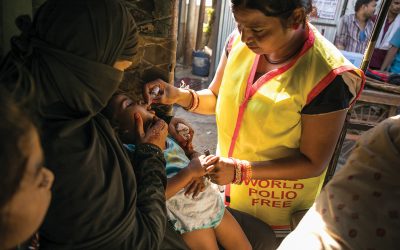Copyright is theft – pure and simple – and it is being practised by Rotary clubs across Great Britain & Ireland.
Let’s be frank, we’ve all done it.
We’ve gone on to Google to find a stunning picture for a presentation, perhaps added it to a social media post or uploaded the visual to a website to enhance a story, then deftly right-clicked with our mouse ‘save image as’.
It’s simple, it’s easy and, let’s be honest who is possibly going to find out?
And there’s the rub as a number of Rotary clubs have discovered their cost.
The warning is loud and clear – you and your club need to be squeaky clean with all content published on your website.”
Photo agencies looking to protect their works are now using artificial intelligence, in the form of bots, which sweep the world wide web to detect their images. Any unlicensed photographs which are spotted will prompt the agency to track down the owners of the site and bill for damages.
Rotary has found itself caught in a number of legal battles in recent years over breaches of copyright in this manner.
In one instance, a Scottish Rotary club ended up with a bill of €5,000 for two breaches when it innocently uploaded a picture taken from Google to its website to illustrate a story. It wasn’t theirs.
The bottom line is this: you CANNOT upload anything to your club’s website, notably images, unless you either own the image or have the owner’s permission. Adding a simple credit caption without even asking for permission is no defence.
Now for Rotary-templated websites, there is a dialogue box which checks the provenance of any image being uploaded. But that’s not a foolproof system.
The law here is the Copyright, Designs and Patents Act 1988 which was enshrined in law before the age of the internet.
It gives those who create something, from a magazine or newspaper article to a novel, a piece of music or a photograph, the power to protect their original work from being copied or used by other people.
Any unlicensed photographs which are spotted will prompt the agency to track down the owners of the site and bill for damages.”
The law states that others cannot copy or use original material which you have created as it if was their own work, without your permission. Copyright is all about deterring and punishing plagiarism.
Now with artificial intelligence, photographic agencies are protecting their intellectual property. More alarming, however, has been the emergence of third-parties acting on behalf of these agencies who are debt-collecting on the web.
In a worrying incident this summer, one London-based business, acting on behalf of a photo agency, invoiced a Rotary club for £500 for sharing a picture on their Facebook page. The Rotary club had shared the post from a charity promoting its aid work in Ukraine. However, in doing so, the charity had lifted an image of the war-torn country on the CNN site. Now, what happened to the charity for this copyright breach is a separate issue. What is more perturbing is that the Rotary club was still held liable for simply sharing.
Now, this is an untested part of the law, but the strict liability is there, and though the fine was reduced to £100, the Rotary club still paid up. The signs are worrying.
I will be running a couple of webinars later this year on copyright. Full details will be published on the Rotary GB&I website and social media channels. If Districts would like me to speak to them about this issue, then please contact me.
The warning is loud and clear – you and your club need to be squeaky clean with all content published on your website, including the archives, and also on social media. That’s why we need to clean up our act and we need to do it now!


























































